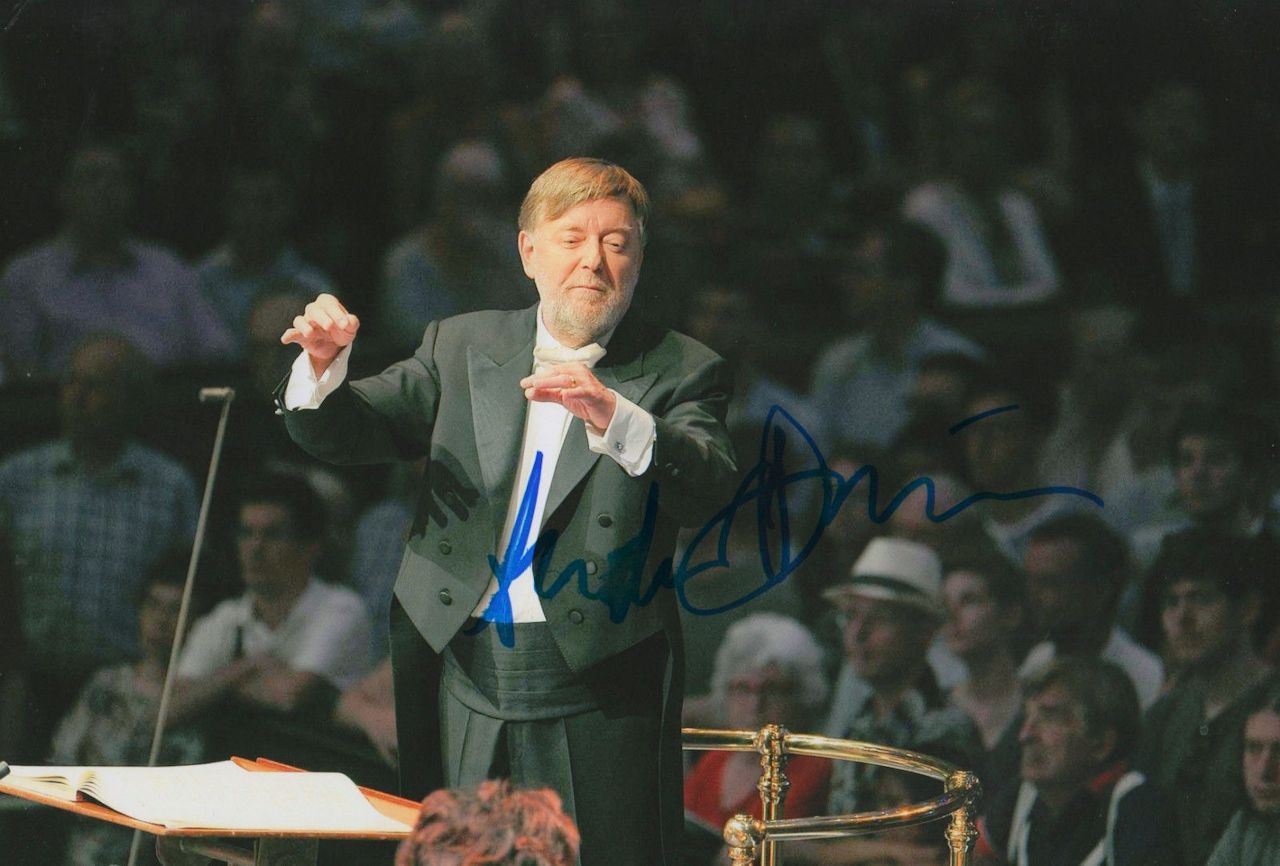

|
The esteemed English conductor, Andrew Frank Davis,
born February 2, 1944 - Ashridge, Hertfordshire, England, studied
piano at the Royal Academy of Music in London, and obtained Bachelor
of Music degree. After taking organ lessons with Peter Hurford and Piet
Kee, he was an organ scholar at King's College, Cambridge (1963-1967),
obtaining his Master of Art degree in 1967. He then received instruction
in conducting from Franco Ferrara at the Accademia di Santa Cecilia in
Rome (1967-1968). In 1984 he obtained Doctor of Letters from the York University
in Toronto.
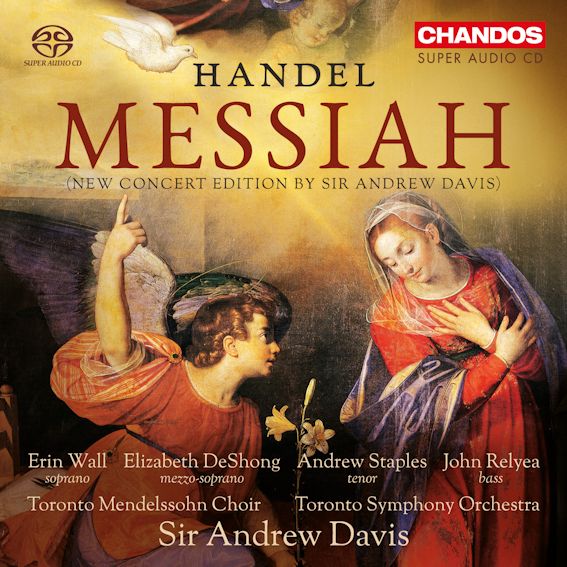
== Names which are links in this box and below refer to my interviews elsewhere on my website. BD |
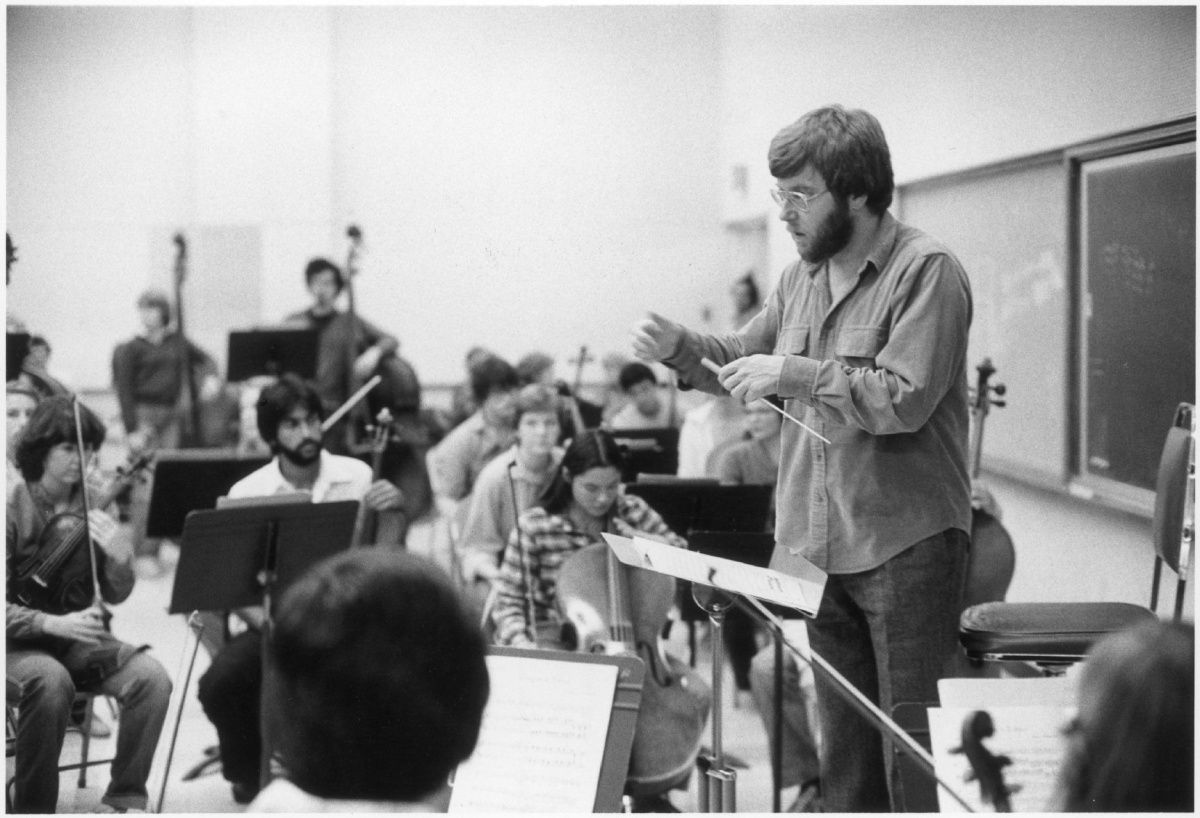
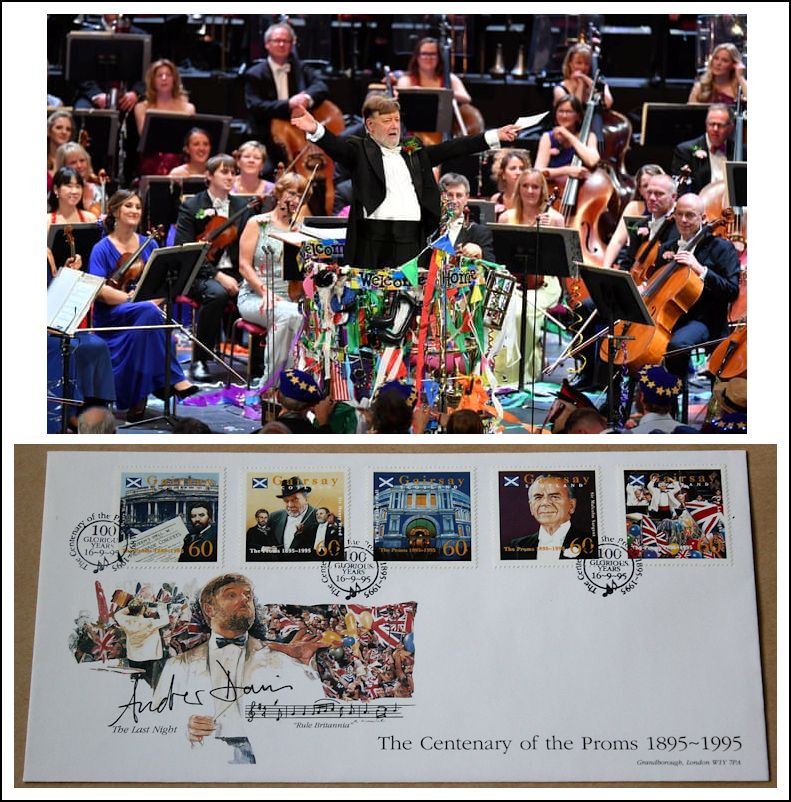 BD: By definition, is everything
that the BBC orchestra does, on the BBC at some point?
BD: By definition, is everything
that the BBC orchestra does, on the BBC at some point?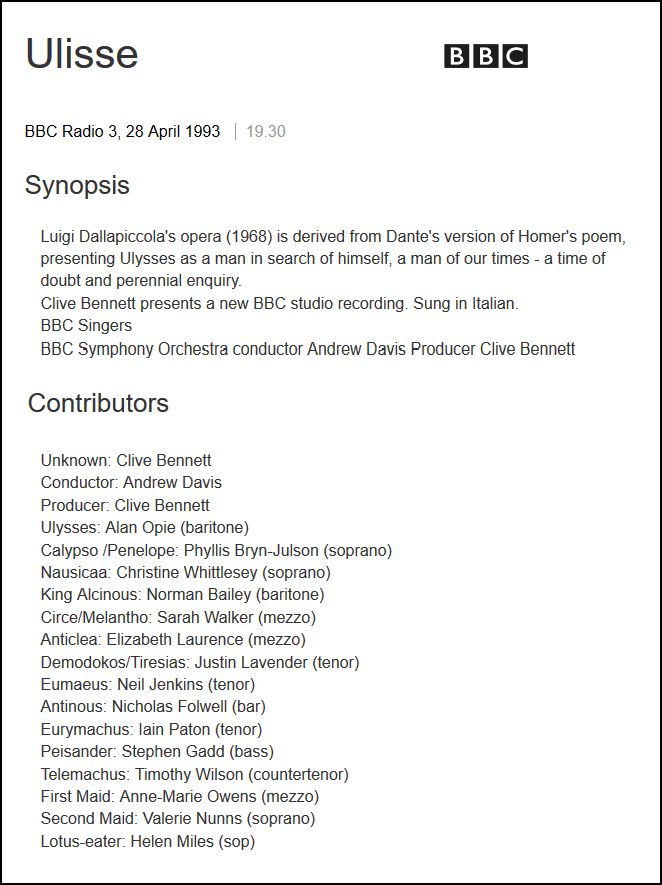 Sir Andrew: For the most part,
I don’t do a lot of opera apart from Glyndebourne usually.
I never do more than one other thing a year, at least I don’t think
I have.
Sir Andrew: For the most part,
I don’t do a lot of opera apart from Glyndebourne usually.
I never do more than one other thing a year, at least I don’t think
I have.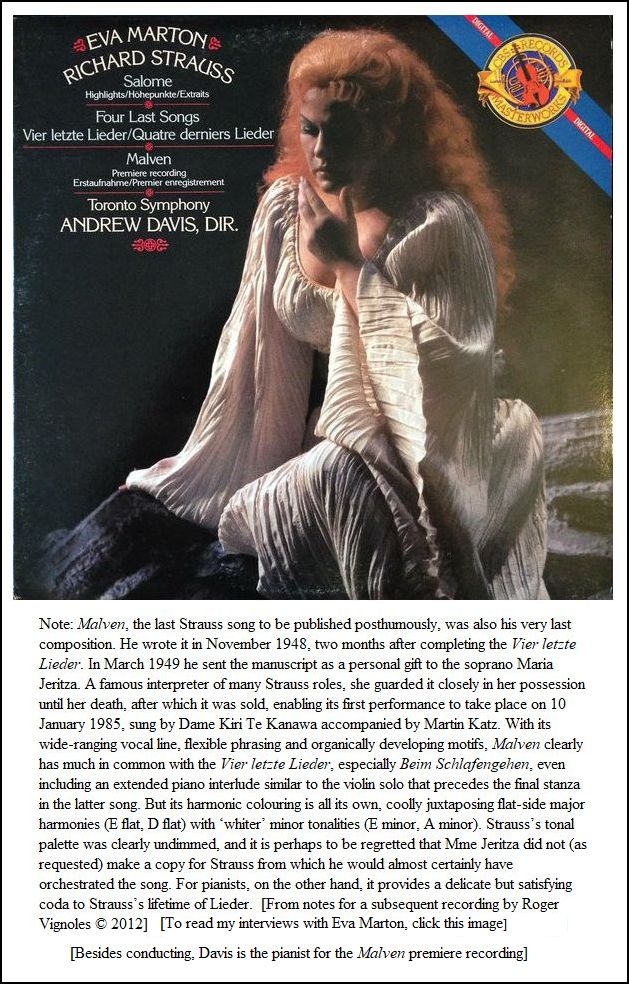 BD: Aside from the obvious, what
are the differences for you between conducting an opera that
is fully staged and an opera that is in concert?
BD: Aside from the obvious, what
are the differences for you between conducting an opera that
is fully staged and an opera that is in concert?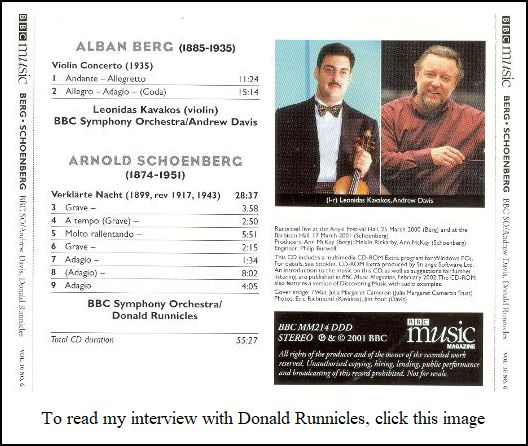 BD: You brought in a string quartet?
BD: You brought in a string quartet?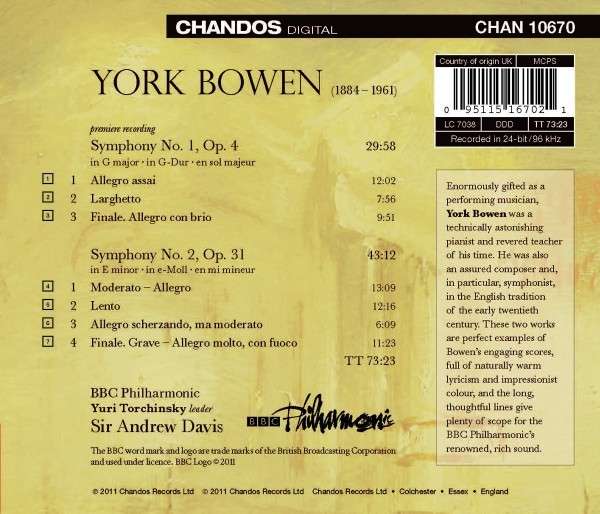 Sir Andrew: It’s certainly a thing.
On the whole it’s a good thing, although I also think there is a certain
something... I don’t particularly like minimalism, I have to say.
I think minimalism is a sort of radical move in the opposite direction
from, say, Boulez. It’s a flight from the kind of Donaueschingen
school of composers, where serialism and organization and extreme
intellectualism or actualization, or whatever you call it, of the protest
composition became the rule. [The Donaueschingen Festival
for contemporary music ("Donaueschinger Musiktage"), founded in 1921
is one of the world's oldest festivals for new music, and takes place
every year in October. Guest composers have included Paul Hindemith,
Arnold Schoenberg, Pierre Boulez, Elliott Carter, John Cage, and György
Ligeti.] So, people reacted to that very
strongly, and minimalism is a reaction against it, which is of no
interest to me at all. Mind you, there have been some composers
who have used minimalism in a very effective way. John Adams
is a minimalist who, actually, is not really a minimalist. He
sort of lands in the cracks somewhere.
Sir Andrew: It’s certainly a thing.
On the whole it’s a good thing, although I also think there is a certain
something... I don’t particularly like minimalism, I have to say.
I think minimalism is a sort of radical move in the opposite direction
from, say, Boulez. It’s a flight from the kind of Donaueschingen
school of composers, where serialism and organization and extreme
intellectualism or actualization, or whatever you call it, of the protest
composition became the rule. [The Donaueschingen Festival
for contemporary music ("Donaueschinger Musiktage"), founded in 1921
is one of the world's oldest festivals for new music, and takes place
every year in October. Guest composers have included Paul Hindemith,
Arnold Schoenberg, Pierre Boulez, Elliott Carter, John Cage, and György
Ligeti.] So, people reacted to that very
strongly, and minimalism is a reaction against it, which is of no
interest to me at all. Mind you, there have been some composers
who have used minimalism in a very effective way. John Adams
is a minimalist who, actually, is not really a minimalist. He
sort of lands in the cracks somewhere.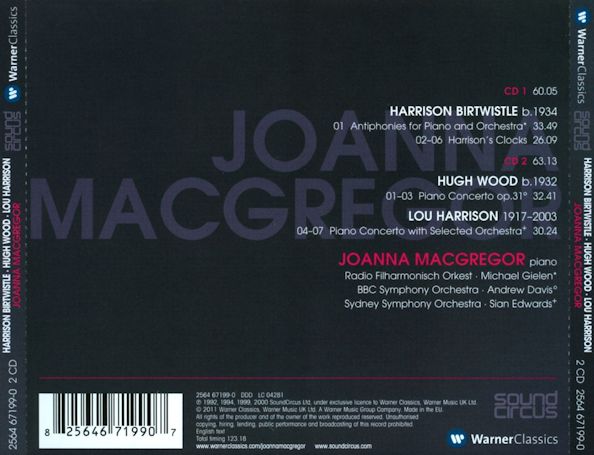 Sir Andrew: Okay, that’s an absolutely fair question.
It’s not to say that I don’t listen to things. The people
who are sitting there trying to be convinced by me, presumably
haven’t heard the music before. At least I do listen, and
study, and look at scores... scores of scores!
Sir Andrew: Okay, that’s an absolutely fair question.
It’s not to say that I don’t listen to things. The people
who are sitting there trying to be convinced by me, presumably
haven’t heard the music before. At least I do listen, and
study, and look at scores... scores of scores!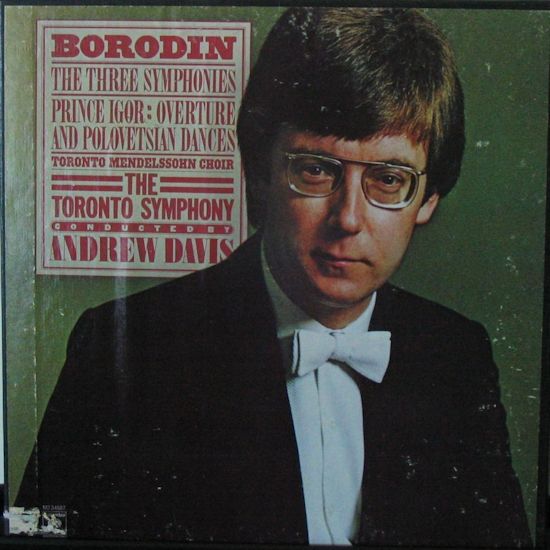 Sir Andrew: I’m not sure why, but
composers seem to be, nowadays, writing for the orchestra better,
using the orchestra more idiomatically. It’s partly, again,
a reaction against the certain style of composition that was ‘in’
in the ’60s and early ‘70s. Then,
the only thing that the violinists did in the orchestra was to hit
the back of their instruments with the bow, and then they would all
say, “Why on Earth have I mortgaged my soul to
buy this violin that was made in 1689, and has cost me thousands and
thousands of dollars, so I can just beat the back of it with a bow that
also cost me thousands of dollars?”
Sir Andrew: I’m not sure why, but
composers seem to be, nowadays, writing for the orchestra better,
using the orchestra more idiomatically. It’s partly, again,
a reaction against the certain style of composition that was ‘in’
in the ’60s and early ‘70s. Then,
the only thing that the violinists did in the orchestra was to hit
the back of their instruments with the bow, and then they would all
say, “Why on Earth have I mortgaged my soul to
buy this violin that was made in 1689, and has cost me thousands and
thousands of dollars, so I can just beat the back of it with a bow that
also cost me thousands of dollars?”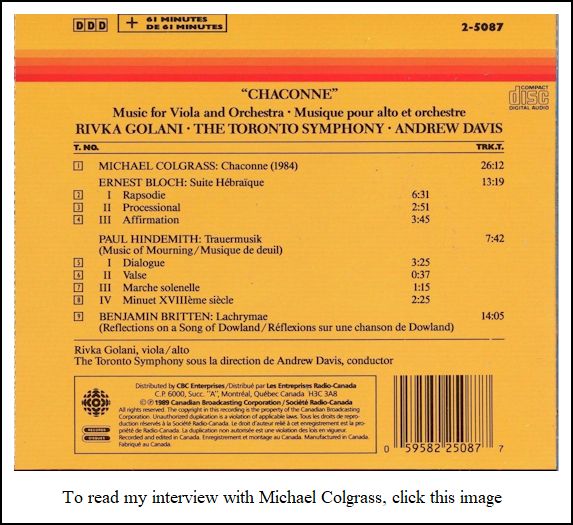 Sir Andrew: Yes, one is aware
of it to a certain extent. They were very discrete. The
Canadians and Torontonians are quite polite on the whole. They
slip out quietly, but things like that always upset me, which is stupid,
really, because it’s not easy listening, although some of it is quite
easy listening, actually. But the thing about Messiaen is that
the time scale is very enormous, and it moves in these large paragraphs.
There are some moments in Turangalîla, as in all
of his music, where, in a sense, time stops, and that’s the great originality
of that composer — that there is no developmental
idea in Messiaen. It’s a question of states that are sometimes
juxtaposed.
Sir Andrew: Yes, one is aware
of it to a certain extent. They were very discrete. The
Canadians and Torontonians are quite polite on the whole. They
slip out quietly, but things like that always upset me, which is stupid,
really, because it’s not easy listening, although some of it is quite
easy listening, actually. But the thing about Messiaen is that
the time scale is very enormous, and it moves in these large paragraphs.
There are some moments in Turangalîla, as in all
of his music, where, in a sense, time stops, and that’s the great originality
of that composer — that there is no developmental
idea in Messiaen. It’s a question of states that are sometimes
juxtaposed.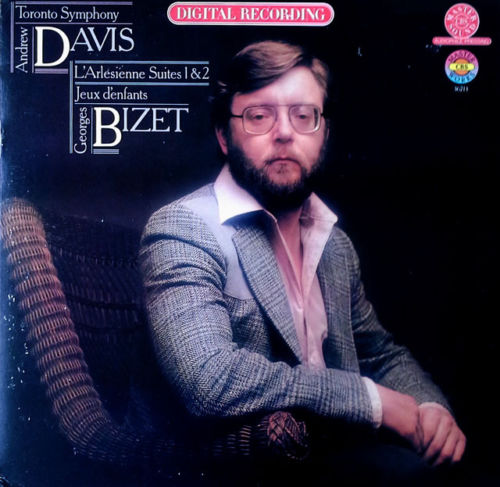 BD: Is it safe to say that once you get rid of the technical
problems, that’s when you can begin making music?
BD: Is it safe to say that once you get rid of the technical
problems, that’s when you can begin making music?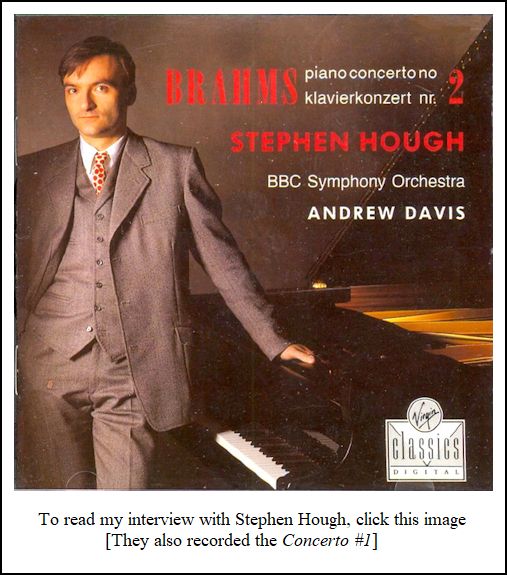 BD: Perhaps that’s a reaction to
what was going on.
BD: Perhaps that’s a reaction to
what was going on.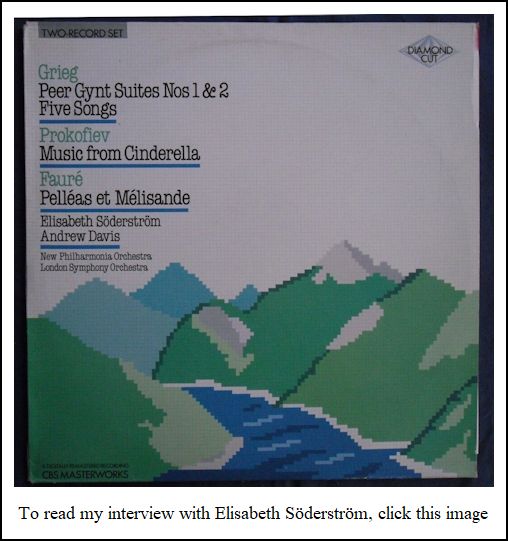 BD: Which order
— the Strauss and then the Stravinsky?
BD: Which order
— the Strauss and then the Stravinsky?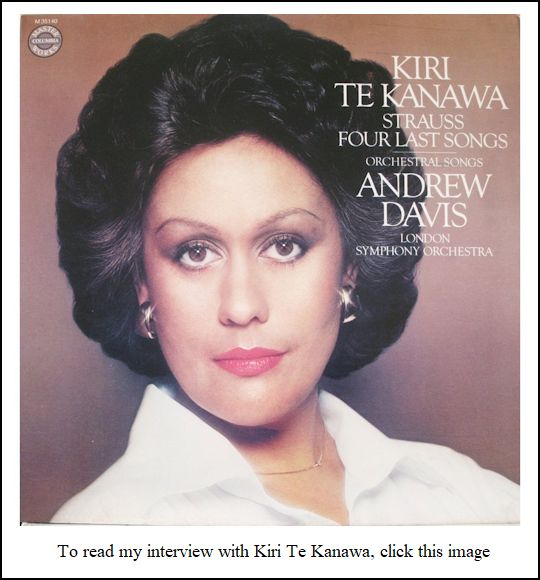 Sir Andrew: Yes, exactly!
Certainly, and I speak for myself, one of the reasons I’ve dabbled
in composition is that somehow, on a certain level, one feels that
being an interpreter is second best. It’s also wonderful because
you have the ability to recreate so many great people’s original utterances
and revelations, which is wonderful. But at the same time,
to have actually created something oneself is even more special.
Sir Andrew: Yes, exactly!
Certainly, and I speak for myself, one of the reasons I’ve dabbled
in composition is that somehow, on a certain level, one feels that
being an interpreter is second best. It’s also wonderful because
you have the ability to recreate so many great people’s original utterances
and revelations, which is wonderful. But at the same time,
to have actually created something oneself is even more special.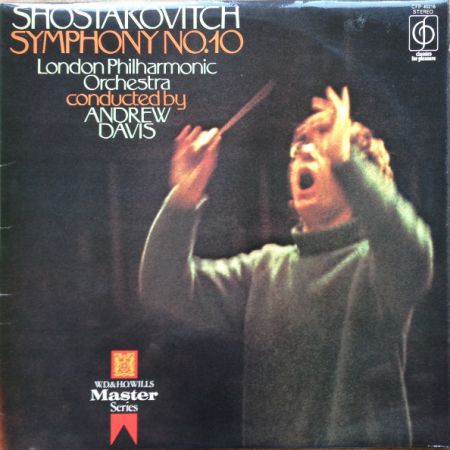 BD: I certainly put Elvis Presley
in a different pigeon hole than Shostakovich.
BD: I certainly put Elvis Presley
in a different pigeon hole than Shostakovich.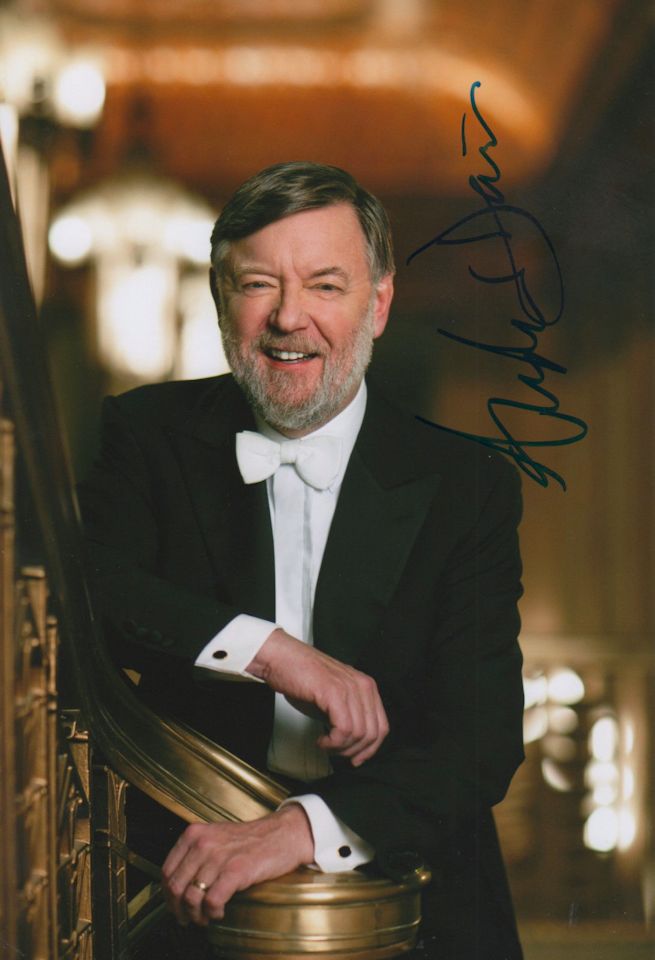 BD: We met a few years ago and talked
about all kinds of things, so this time I’d like to concentrate
mostly just on Lyric Opera Chicago. What was your first reaction
when you were asked to become Music Director of this opera house?
BD: We met a few years ago and talked
about all kinds of things, so this time I’d like to concentrate
mostly just on Lyric Opera Chicago. What was your first reaction
when you were asked to become Music Director of this opera house?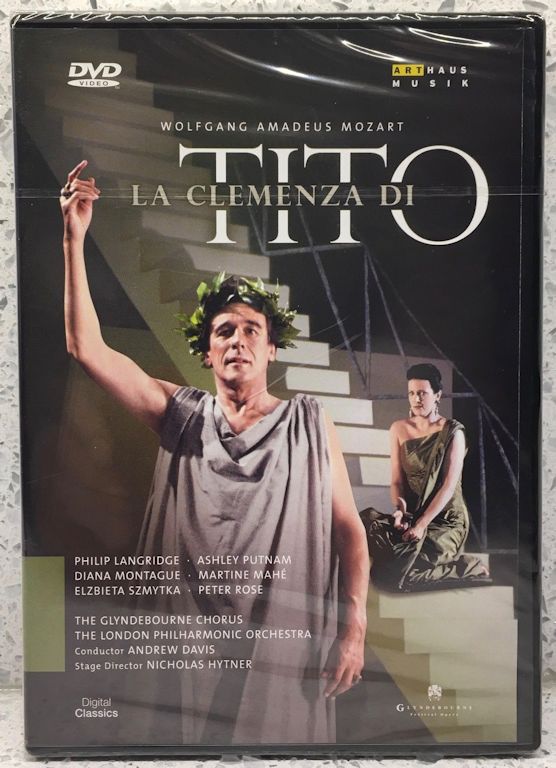 Sir Andrew: Capriccio, yes. My previous
experience here was entirely Mozart, having done Figaro
twice, and Così, and La Clemenza di Tito, which I
enjoy immensely. I remember saying to Bill at one point, “I’m
not coming back unless you let me conduct something else!”
[Laughs] So then the question was what repertoire would
I have been interested in doing, and I must say I like to do everything,
stylistically speaking. There are people who probably can
do some things better than I can. I’ve never conducted any bel
canto, but there are certain conductors around who have a real
flare for that music.
Sir Andrew: Capriccio, yes. My previous
experience here was entirely Mozart, having done Figaro
twice, and Così, and La Clemenza di Tito, which I
enjoy immensely. I remember saying to Bill at one point, “I’m
not coming back unless you let me conduct something else!”
[Laughs] So then the question was what repertoire would
I have been interested in doing, and I must say I like to do everything,
stylistically speaking. There are people who probably can
do some things better than I can. I’ve never conducted any bel
canto, but there are certain conductors around who have a real
flare for that music.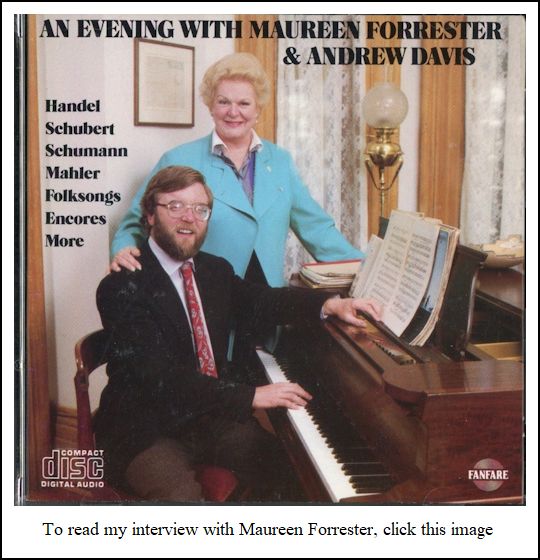 Sir Andrew: Oh, yes, absolutely.
There’s no question that when one’s casting opera at Glyndebourne,
one is casting for a house in which a smaller voice can actually
fill the theater and be very satisfying, whereas you’d have to think
differently in houses like Chicago and the Met.
Sir Andrew: Oh, yes, absolutely.
There’s no question that when one’s casting opera at Glyndebourne,
one is casting for a house in which a smaller voice can actually
fill the theater and be very satisfying, whereas you’d have to think
differently in houses like Chicago and the Met.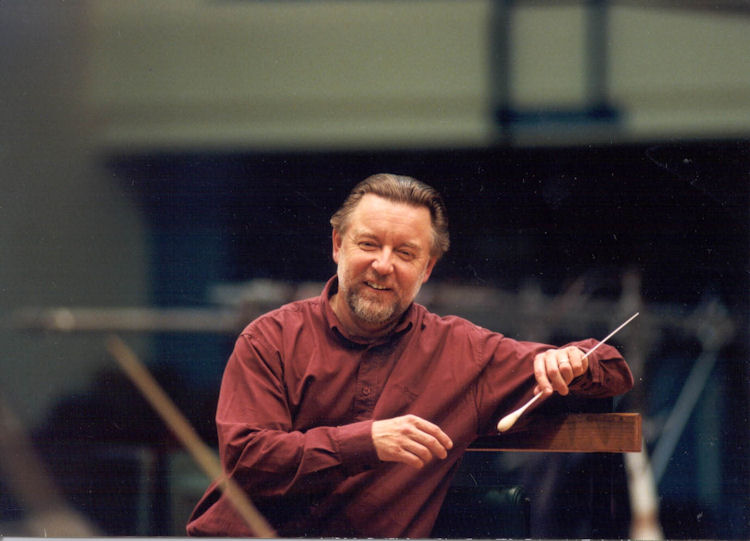 BD: In the best of all possible worlds,
would you like to run an opera with matinee and evening performances
365 days a year just to be able to do everything?
BD: In the best of all possible worlds,
would you like to run an opera with matinee and evening performances
365 days a year just to be able to do everything?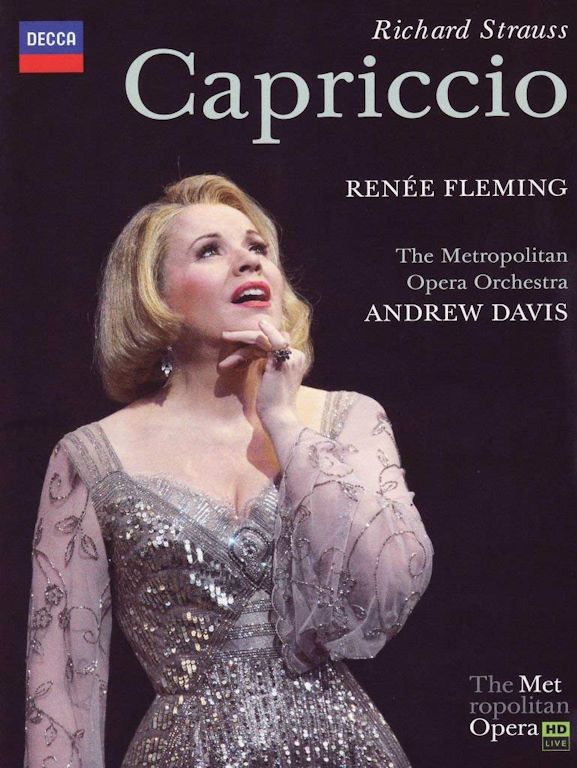 Sir Andrew: Well, that’s right! He was the greatest
showman of them all.
Sir Andrew: Well, that’s right! He was the greatest
showman of them all.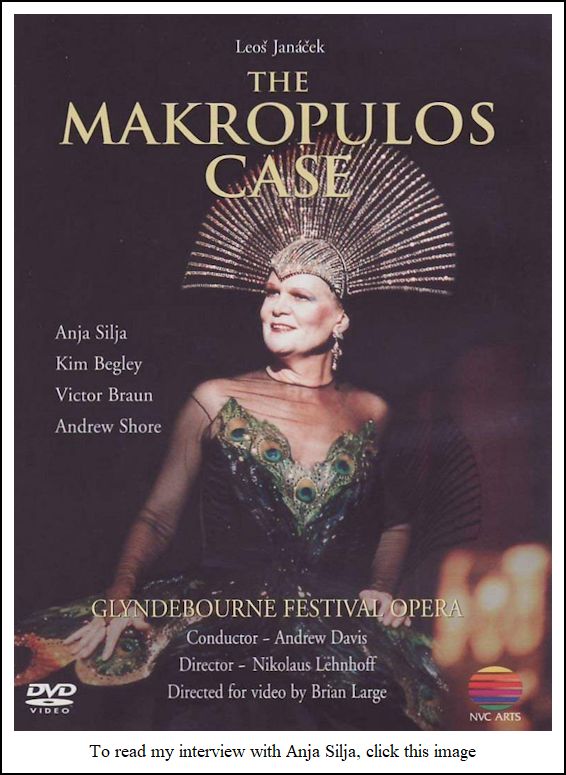 BD: Is that what you look for as Music Director,
and when selecting repertoire for yourself and others? Do you
only select pieces that either are completely great or, at least,
have a lot of greatness within them?
BD: Is that what you look for as Music Director,
and when selecting repertoire for yourself and others? Do you
only select pieces that either are completely great or, at least,
have a lot of greatness within them?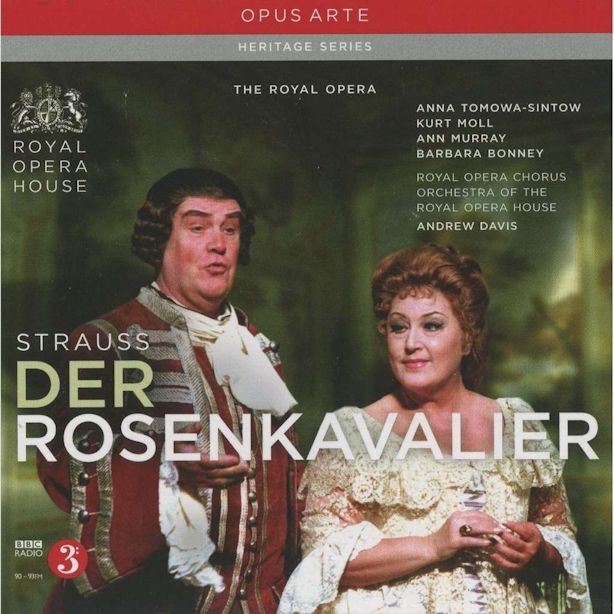 Sir Andrew: Yes, I’ve had to decide what’s important.
I’m continuing to work with the major American orchestras, both in the
winter season and in the summer. This summer I’m at Tanglewood
(Boston Symphony), and Ravinia, and Blossom (Cleveland Orchestra).
I’ve decided that with very few exceptions, the Continent of Europe
— as we call it in England — is
probably going to not see me a great deal. I want to continue
my association with the BBC Symphony Orchestra that’s been so fruitful
and enjoyable for me, and so I’m going to be doing concerts in London,
and opera, of course, as well. I’m going to Covent Garden next
season to do The Midsummer Marriage by Michael Tippett.
Sir Andrew: Yes, I’ve had to decide what’s important.
I’m continuing to work with the major American orchestras, both in the
winter season and in the summer. This summer I’m at Tanglewood
(Boston Symphony), and Ravinia, and Blossom (Cleveland Orchestra).
I’ve decided that with very few exceptions, the Continent of Europe
— as we call it in England — is
probably going to not see me a great deal. I want to continue
my association with the BBC Symphony Orchestra that’s been so fruitful
and enjoyable for me, and so I’m going to be doing concerts in London,
and opera, of course, as well. I’m going to Covent Garden next
season to do The Midsummer Marriage by Michael Tippett.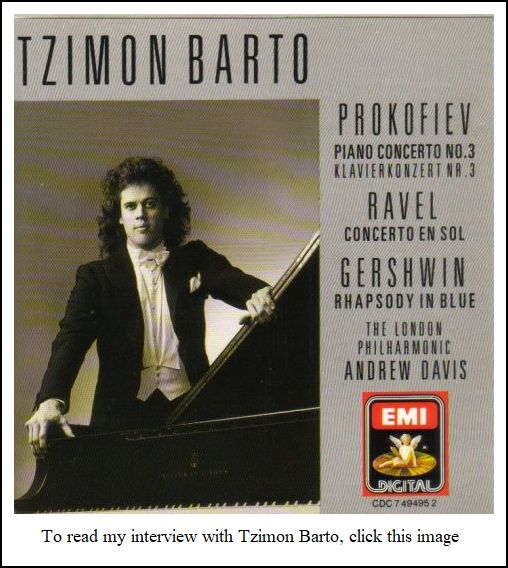 Sir Andrew: I hope so, too. I remember
when I first went to Toronto in 1967 on an organists’ convention,
I had a sense that this was some place that was not just another
place I was just visiting, and sure enough, nine years later I was
Music Director there. Similarly, I found a special quality to
how I felt working in Chicago. I don’t like to talk about premonitions,
but there are certain things, certain resonances coming up in your
life that feel... [pauses]
Sir Andrew: I hope so, too. I remember
when I first went to Toronto in 1967 on an organists’ convention,
I had a sense that this was some place that was not just another
place I was just visiting, and sure enough, nine years later I was
Music Director there. Similarly, I found a special quality to
how I felt working in Chicago. I don’t like to talk about premonitions,
but there are certain things, certain resonances coming up in your
life that feel... [pauses]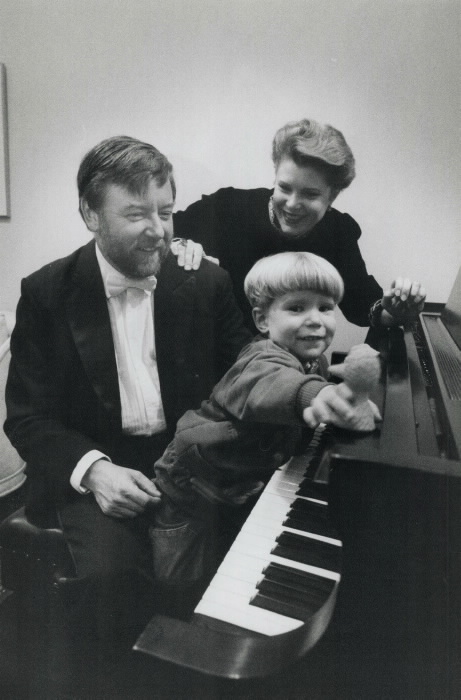 BD: I’m glad to know it’s coming.
BD: I’m glad to know it’s coming.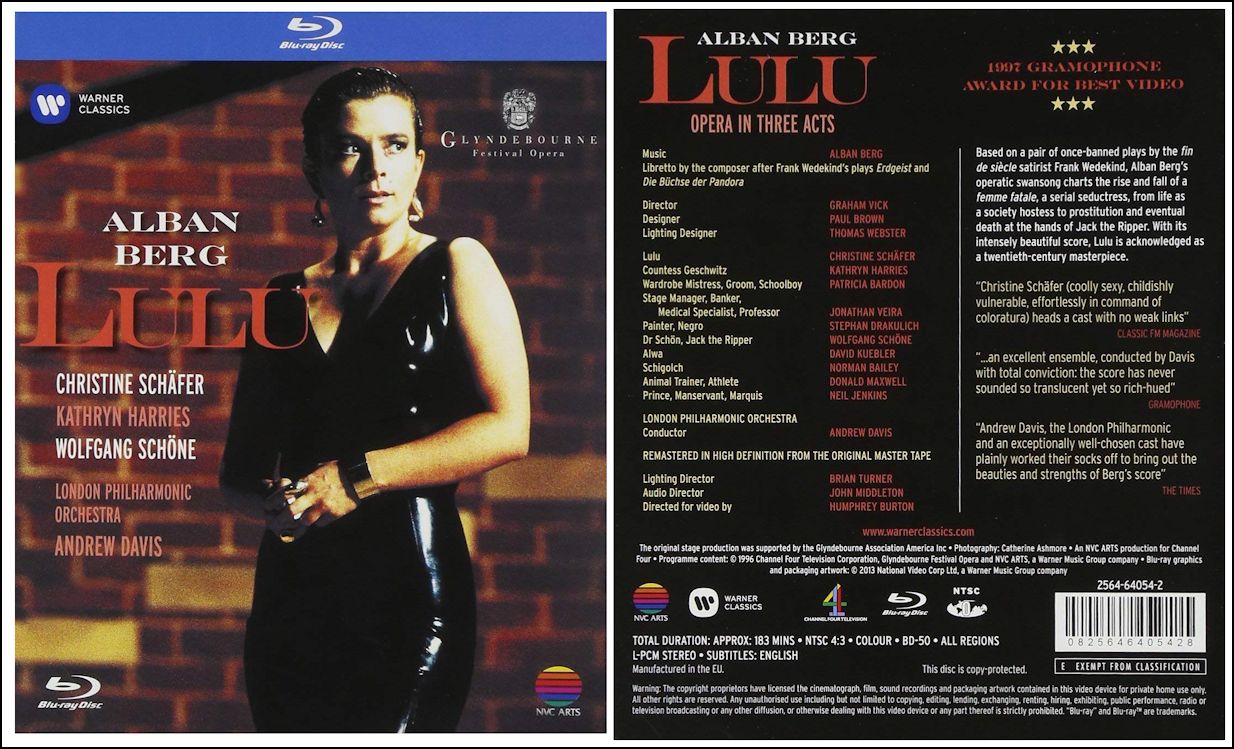
© 1993 & 2000 Bruce Duffie
These conversations were recorded in Chicago on November 8, 1993, and October 30, 2000. Portions were broadcast on WNIB in 1994, 1999, and 2001 (on the final broadcast of WNIB as a Classical Music station); and on WNUR in 2004, 2010, and 2016. This transcription was made in 2018, and posted on this website at that time. My thanks to British soprano Una Barry for her help in preparing this website presentation.
To see a full list (with links) of interviews which have been transcribed and posted on this website, click here.
Award - winning broadcaster Bruce Duffie was with WNIB, Classical 97 in Chicago from 1975 until its final moment as a classical station in February of 2001. His interviews have also appeared in various magazines and journals since 1980, and he now continues his broadcast series on WNUR-FM.
You are invited to visit his website for more information about his work, including selected transcripts of other interviews, plus a full list of his guests. He would also like to call your attention to the photos and information about his grandfather, who was a pioneer in the automotive field more than a century ago. You may also send him E-Mail with comments, questions and suggestions.